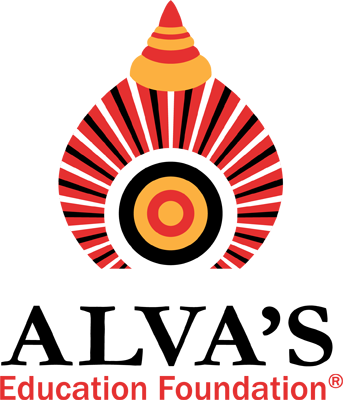COURSES OFFERED
BACHELAR IN PHARMACY (B.Pharm)

The Bachelor of Pharmacy (B.Pharm) is an undergraduate academic degree in the field of pharmacy education in India. Here are the key aspects of the B.Pharm course
Overview
- Duration: Typically, the B.Pharm course is four years long, divided into eight semesters.
- Mode of program: Choice based credit system
- Regulatory body: Pharmacy Council of India is the controlling authority of the Indian Pharmacy education. PCI is a legal body ruled by the provisions of the Pharmacy Act 1948 along with AICTE as apex body
- Eligibility: Candidates must have passed the 10+2 examination (or equivalent examination of any other Board or University) with Physics, Chemistry, Maths (PCM) or Physics, Chemistry, Biology (PCB) or Physics, Chemistry, Maths & Biology as subjects. They should have obtained a minimum of 40% marks in aggregate in these subjects.
(Minimum eligibility should be based on the aggregate of P.C.M. or P.C.B.) or P.C.M.B., P.C. and Computer Sciences, P.C. and Electronics.
The candidates who have taken P.C.M.B. combination, the aggregate of P.C.M Or P.C.B., whichever is higher, shall be considered for the purpose of admission.
The candidates who have passed the D.Pharm course from an institution approved by the Pharmacy Council of India (PCI) are also eligible to pursue the BPharm. D.Pharm holders are typically eligible for lateral entry into the second year (3rd semester) of the B.Pharm course, reducing the duration of the B.Pharm program from four years to three years for these candidates.
For candidates belonging to the reserved categories (SC/ST/Category-I/OBC), a minimum of 35% marks in aggregate is required.
Career Prospects
Pharmacy is a vital healthcare profession that bridges the gap between the medical sciences and the general public. Pharmacists are highly trained professionals who specialize in the composition, effects, mechanism, and proper use of medications. They play a crucial role in patient care, ensuring the safe and effective use of pharmaceutical drugs. This profession encompasses various aspects, including the preparation and dispensing of medications, patient education, and collaboration with other healthcare providers to optimize patient outcomes.
Advantages of the Pharmacy Profession
- Patient Interaction and Impact: Pharmacists have the unique opportunity to interact directly with patients, offering advice and support that can significantly impact their health and wellbeing.
- Diverse Career Paths: Pharmacy offers a wide range of career options, from clinical practice to research and development, regulatory affairs, and academia.
- Job Stability and Growth: The demand for healthcare services, including pharmaceutical care, continues to grow, ensuring job stability and numerous opportunities for career advancement.
- Competitive Salaries: Pharmacists typically enjoy competitive salaries and benefits, reflecting their expertise and essential role in healthcare.
- Innovation and Research: The field of pharmacy is continually evolving with advancements in medical science, providing opportunities for those interested in research and innovation to contribute to the development of new drugs and therapies.
Job Opportunities in the Pharmacy Profession
The pharmacy profession offers a multitude of career paths, each with its own set of opportunities and challenges:
- 1. Manufacturing: Pharmacists play a crucial role in the pharmaceutical manufacturing sector, overseeing the production of medications, ensuring quality control, and complying with regulatory standards.
- Research and Development (R&D): In R&D, pharmacists work on the development of new drugs and formulations, conducting clinical trials, and contributing to scientific advancements in medicine.
- Drug Discovery: Pharmacists involved in drug discovery research new compounds and develop innovative therapies. This field requires a deep understanding of chemistry, biology, and pharmacology to identify potential new medications.
- Biotechnology (Vaccines and Injectables): Pharmacists in biotechnology work on developing vaccines, injectable medications, and other biopharmaceuticals. This involves cutting-edge research and collaboration with scientists to create effective treatments and preventive measures.
- Sales and Marketing: Pharmaceutical sales and marketing involve promoting and selling medications to healthcare providers and institutions. This field requires strong communication skills and a thorough understanding of the products.
- Hospital and Clinical Pharmacy: Hospital pharmacists work directly with healthcare teams to manage medication therapy, provide patient education, and ensure the safe use of medications in clinical settings.
- Community Pharmacy: Community pharmacists dispense medications, counsel patients on proper drug use, and provide healthcare advice in a retail setting, often serving as the first point of contact for health concerns.
- Regulatory Affairs: Professionals in this field ensure that pharmaceutical products comply with all regulations and laws, working with government agencies to navigate the complex landscape of drug approval and monitoring.
- Academia and Education: Pharmacists can also pursue careers in academia, teaching and training the next generation of pharmacy professionals and conducting research to advance the field.
Higher Education
- M.Pharm: Pursuing a master’s degree in specialized fields like Pharmaceutics, Pharmacology, Pharmaceutical Chemistry, etc.
- Pharm.D: A doctoral program focusing on clinical pharmacy.
- Ph.D.: Engaging in advanced research in pharmaceutical sciences.
Curriculum
The curriculum includes a blend of theoretical and practical subjects related to pharmacy, such as Pharmaceutics, Pharmacology, Medicinal Chemistry, Pharmaceutical Analysis, and Pharmacognosy.
Core Subjects
Pharmaceutics: Study of formulation of drugs into dosage forms.
Pharmaceutical Chemistry: Involves the chemistry of drug molecules.
Pharmacology: Focuses on the effects of drugs on biological systems.
Pharmacognosy: Study of medicinal drugs derived from plants and other natural sources.
Pharmaceutical Analysis: Techniques and methods for analyzing drugs.
Laboratory Work: Includes practical experiments in various subjects.
Course structure
Duration: Typically, the B.Pharm course is four years long, divided into eight semesters
Industrial Training: After passing Fourth Year B.Pharm Examination the student shall undergo compulsory industrial training of not less than 150 Hours over a period of one month at any Pharmaceutical Industry.
Internal assessment: Three sessional examinations shall be conducted during the academic year by the college. The average marks of best two examinations, separately for theory and practical shall be computed for the declaration of Results.
Attendance: The candidates are normally expected to attend all allotted work period (both theory and practicals) in each of the prescribed subject. They should attend 80% of the total number of classes conducted in each of the subject to be eligible to appear for the university examination in that subject
Credit Assignment
Theory and Laboratory Courses
Courses are broadly classified as Theory and Practical. Theory courses consist of lecture (L) and/or tutorial (T) hours, while Practical (P) courses consist of hours spent in the laboratory. Credits (C) for a course depend on the number of hours of instruction per week and are calculated using a multiplier of one (1) for lecture and tutorial hours, and a multiplier of half (1/2) for practical (laboratory) hours.
For example, a theory course with three lectures and one tutorial per week throughout the semester carries a credit of 4. Similarly, a practical course with four laboratory hours per week throughout the semester carries a credit of 2.
Minimum credit requirements
The minimum credit points required for a B.Pharm degree is 208. These credits are divided into Theory courses, Tutorials, Practical, Practice School, and Projects over the duration of eight semesters. The credits are distributed semester-wise as shown in Table IX. Courses generally progress in sequences, building competencies, and their positioning indicates a certain level of academic maturity on the part of the learners. Learners are expected to follow the semester-wise schedule of courses given in the syllabus.
Lateral entry students shall have 52 credit points transferred from their D.Pharm program. Such students shall take additional remedial courses in ‘Communication Skills’ (Theory and Practical) and ‘Computer Applications in Pharmacy’ (Theory and Practical), equivalent to 3 and 4 credit points respectively, totaling 7 credit points, to attain 59 credit points, the maximum for the I and II semesters.

